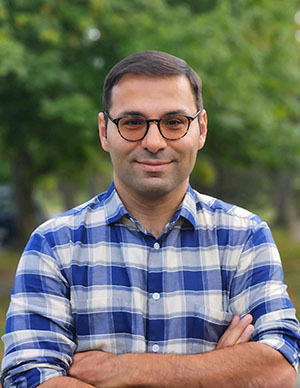The College of Arts & Letters has added a new minor in Middle Eastern and North African (MENA) studies to provide undergraduates with the opportunity to study multiple facets of one of the world’s oldest and most diverse civilizations.
“The area is the cradle of civilization,” said Hussein Abdulsater, director of the minor and an associate professor of Arabic. “So whether you are more into politics or economics or religion or culture or anthropology, this is a place you want to study.”
Because the region is constantly a part of public discourse, the goal of the minor is to acquaint students with the region and learn about its history, cultures, and politics. This will make it possible for them to pursue advanced study at a later stage and utilize constructive skills to navigate future topics concerning the area.
Housed in the Department of Classics, the MENA minor is a part of the college’s Program in Arabic and Middle Eastern Studies and offers students interdisciplinary course options where they can explore the Middle East and North Africa through a particular focus.
Students are required to take an introductory course — Introduction to the Middle East — and then three other courses that will be streamlined into a one-track focus, such as religion and culture or history and politics. To complete the minor, students will then create a research capstone project or take an additional advanced course.

There is no Arabic language requirement and the minor is available to all students regardless of their major.
“We have decided to cast the minor in the widest possible terms exactly with this interdisciplinary study in mind,” Abdulsater said. “And as time goes on, more courses will be offered to satisfy the various interests of students considering this minor."
The minor also offers the opportunity to bring together MENA-focused faculty from across departments and programs at Notre Dame who, in the past, may not have worked cohesively on one specific endeavor. There are existent working groups that focus on Islamic studies, religion and pluralism in the medieval Mediterranean, and scripture and reasoning, with plans to form others in the future.
“We have excellent scholars of the Middle East in history, politics, and philosophy, but their courses were never before tied together into one kind of effort,” Abdulsater said. “So the edge that we will have is basically the caliber of our faculty, but now they are pulled together to offer this to students.”
Originally published by at al.nd.edu on October 27, 2023.